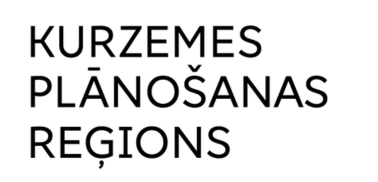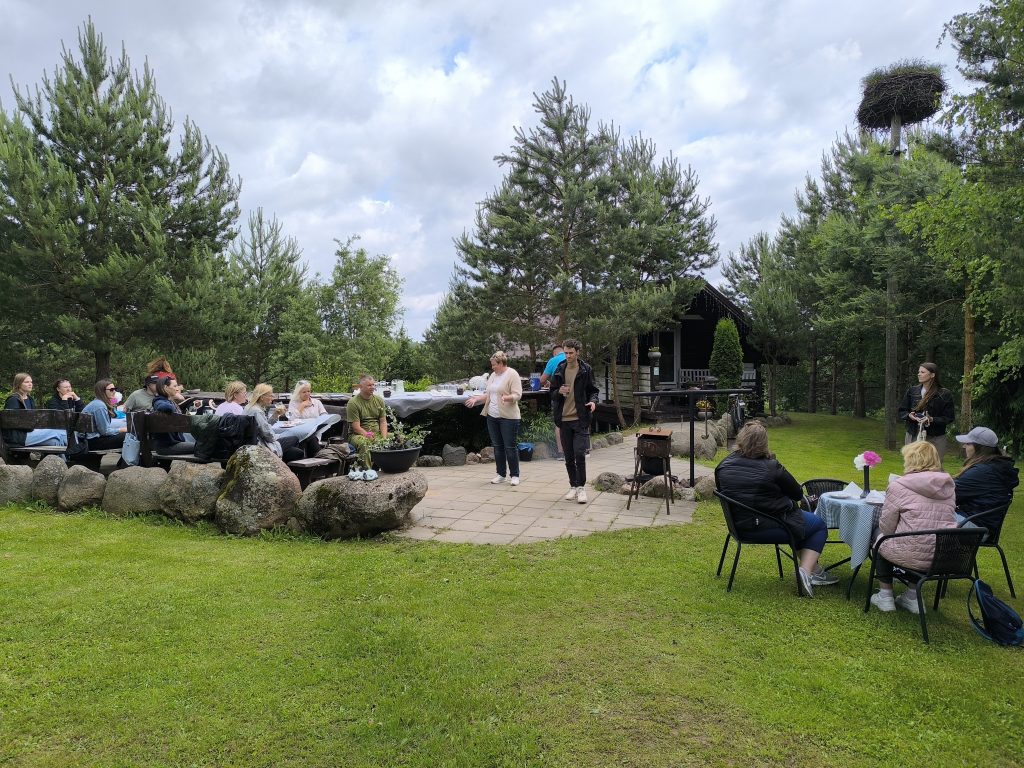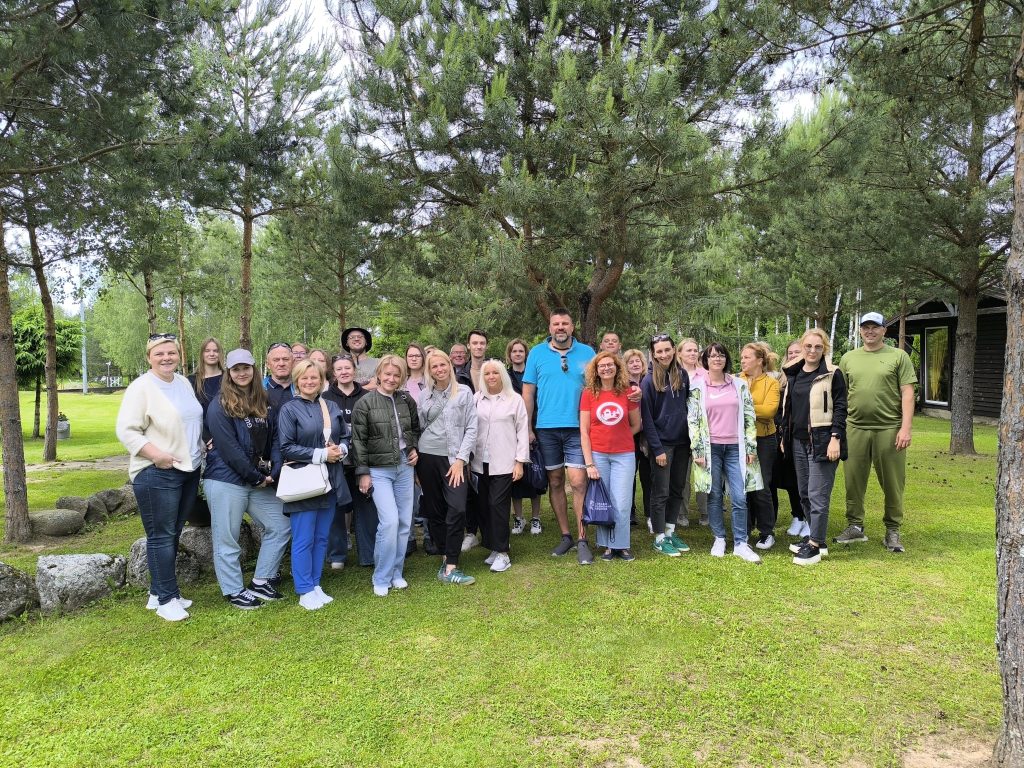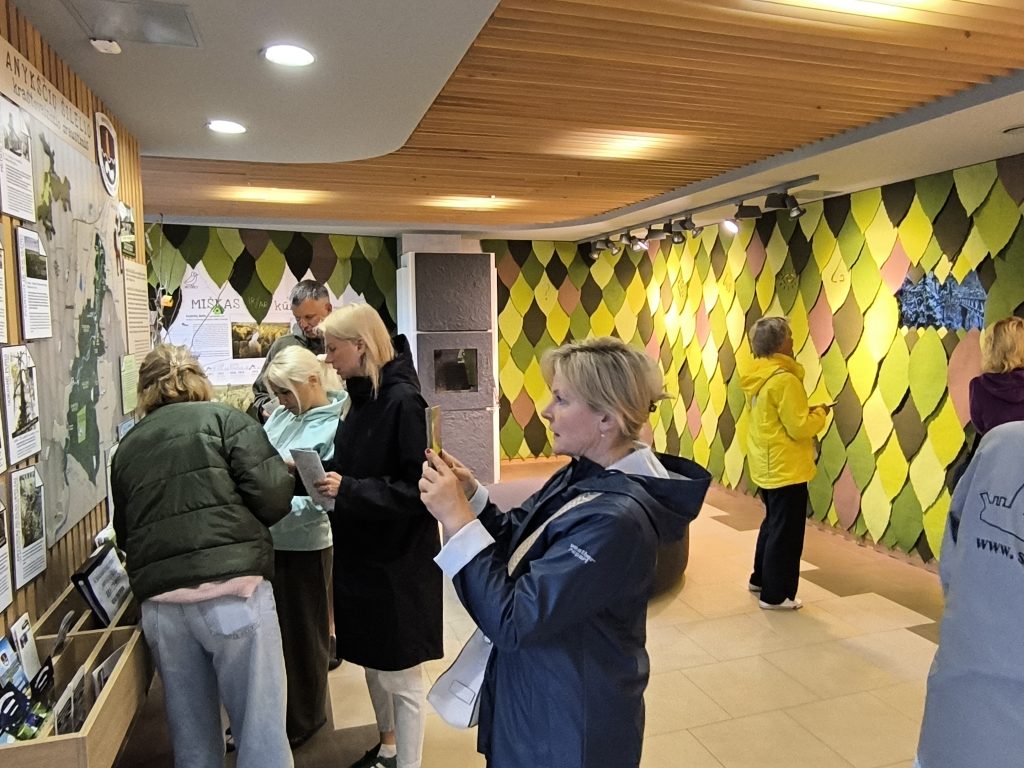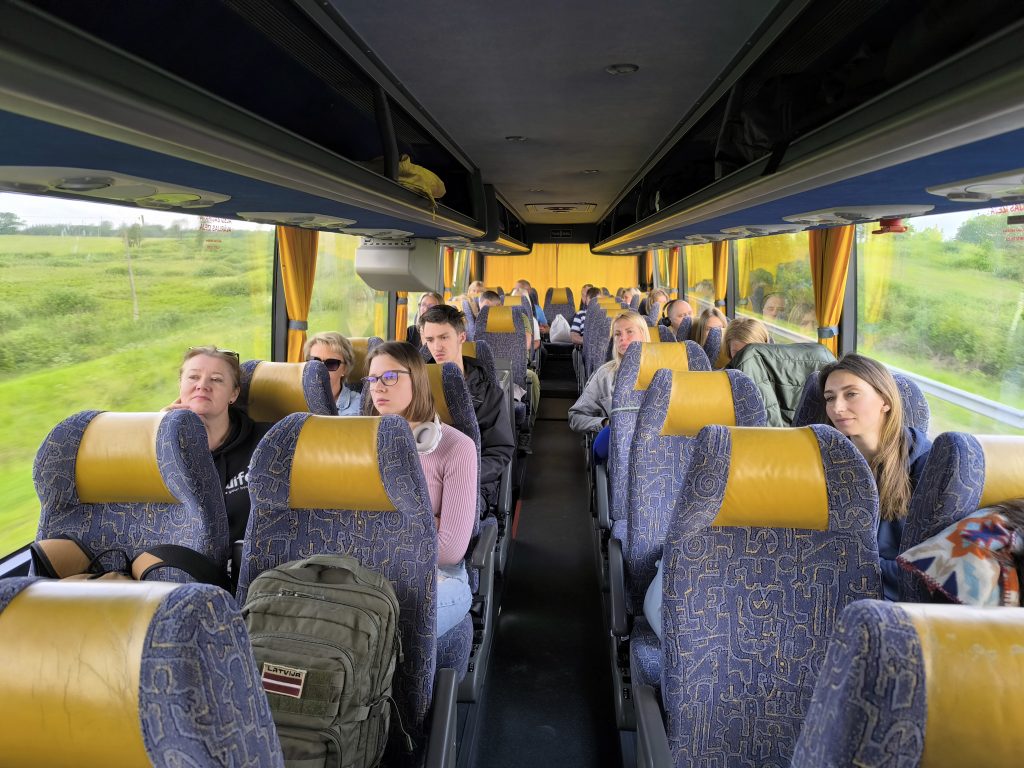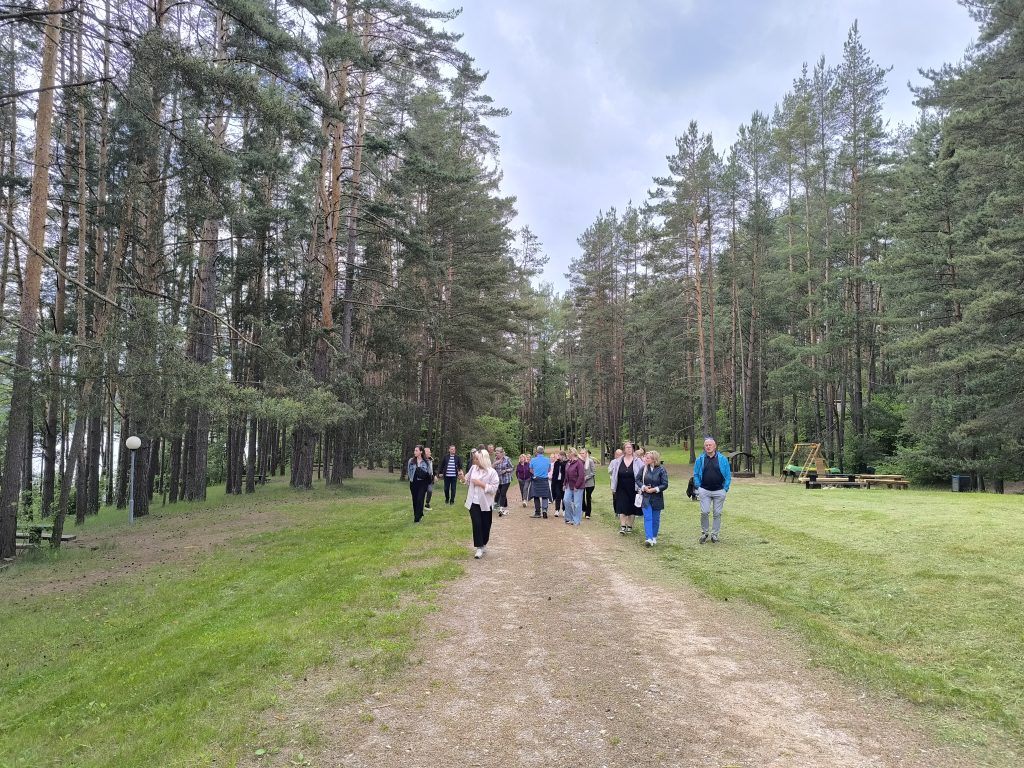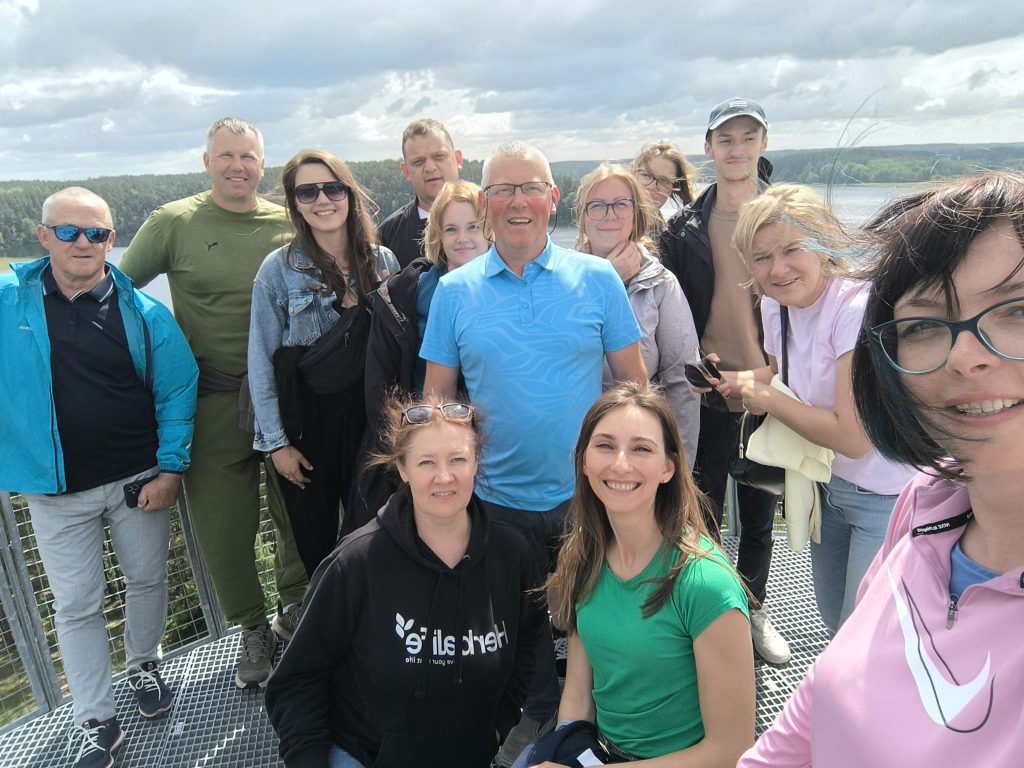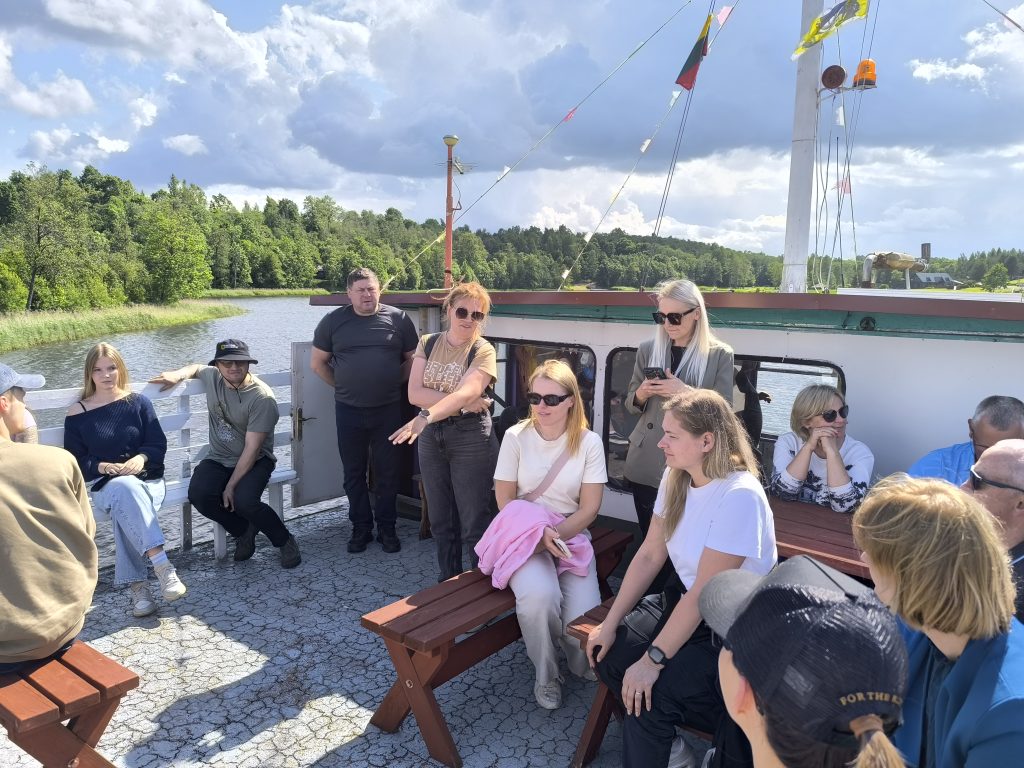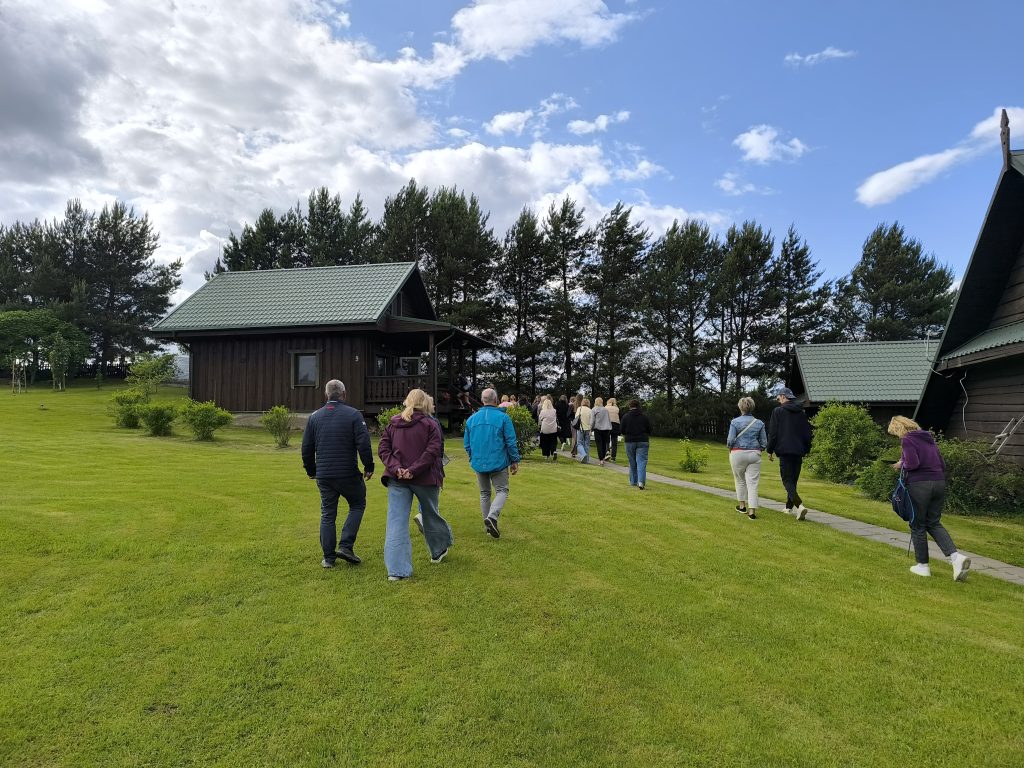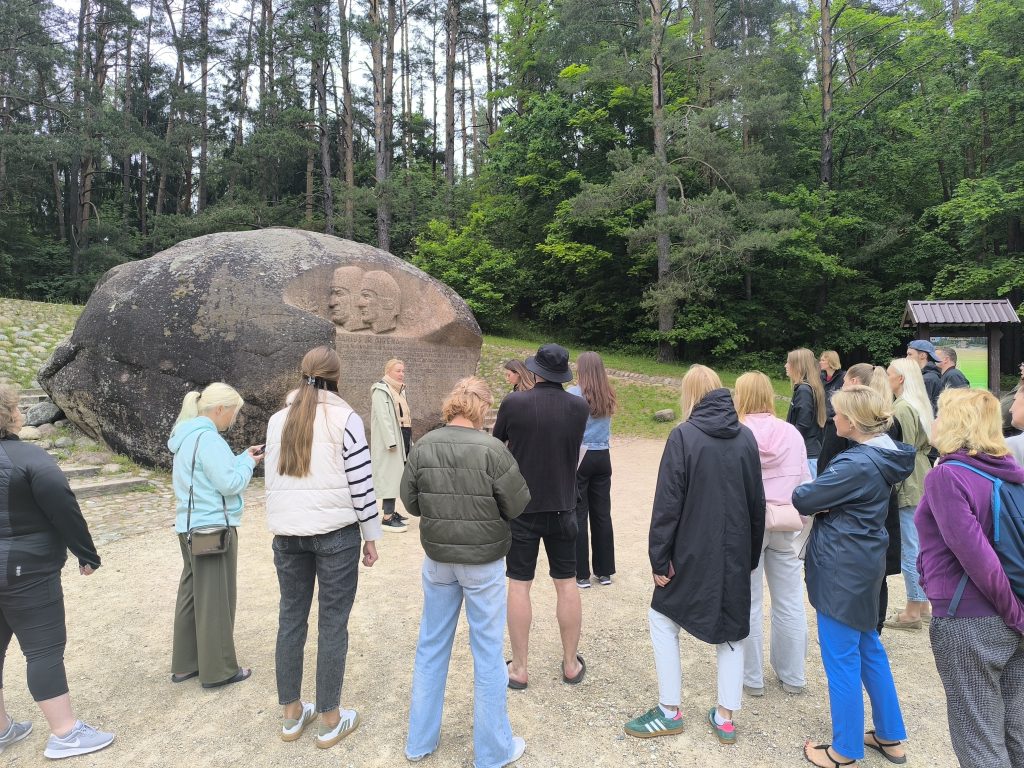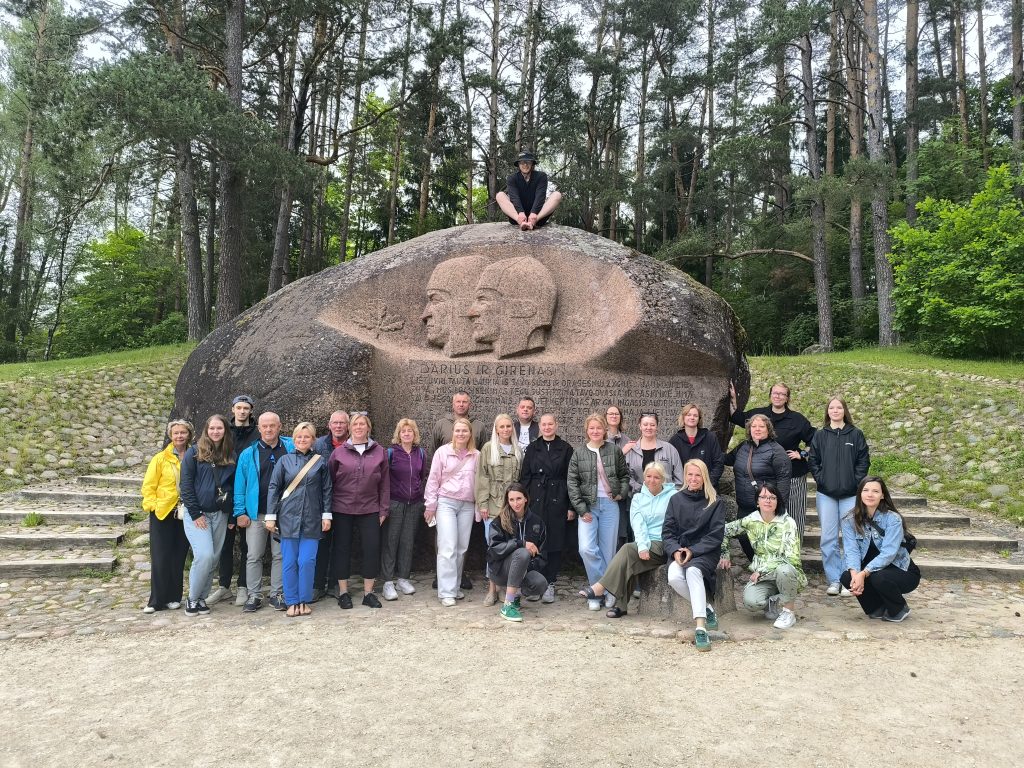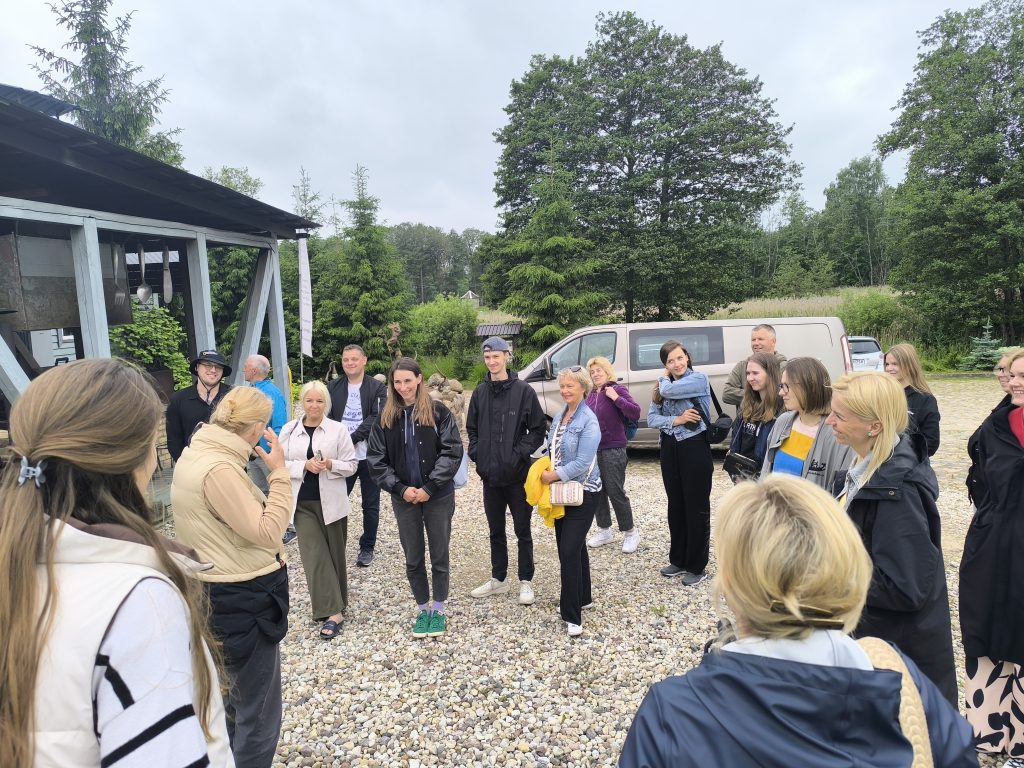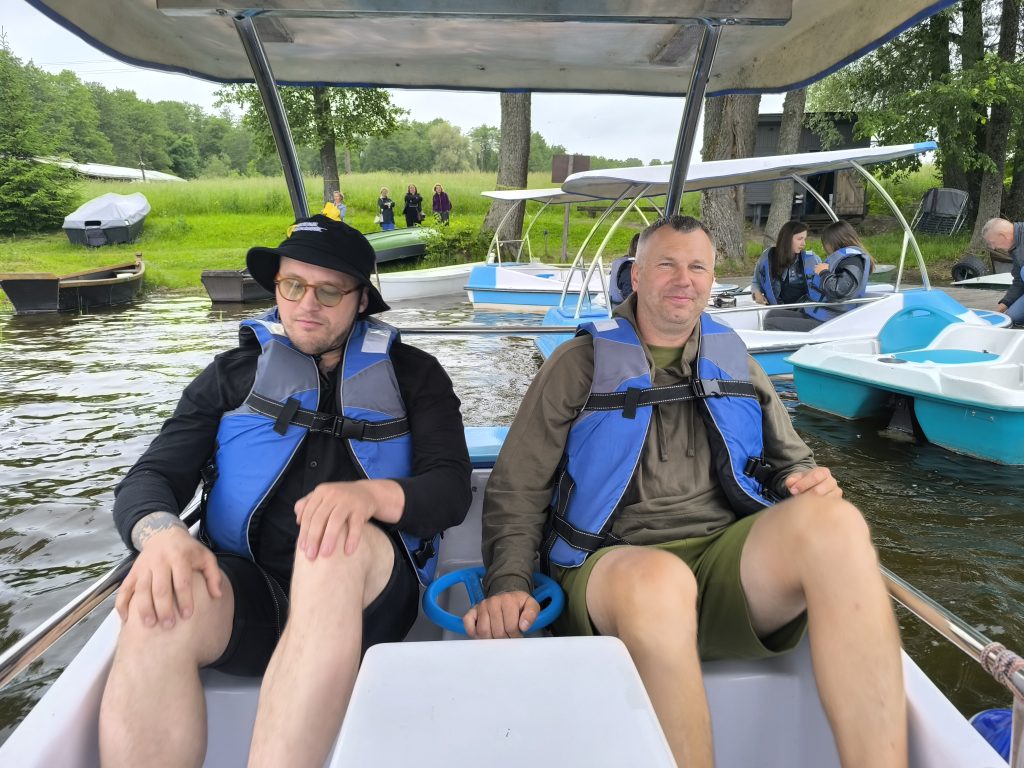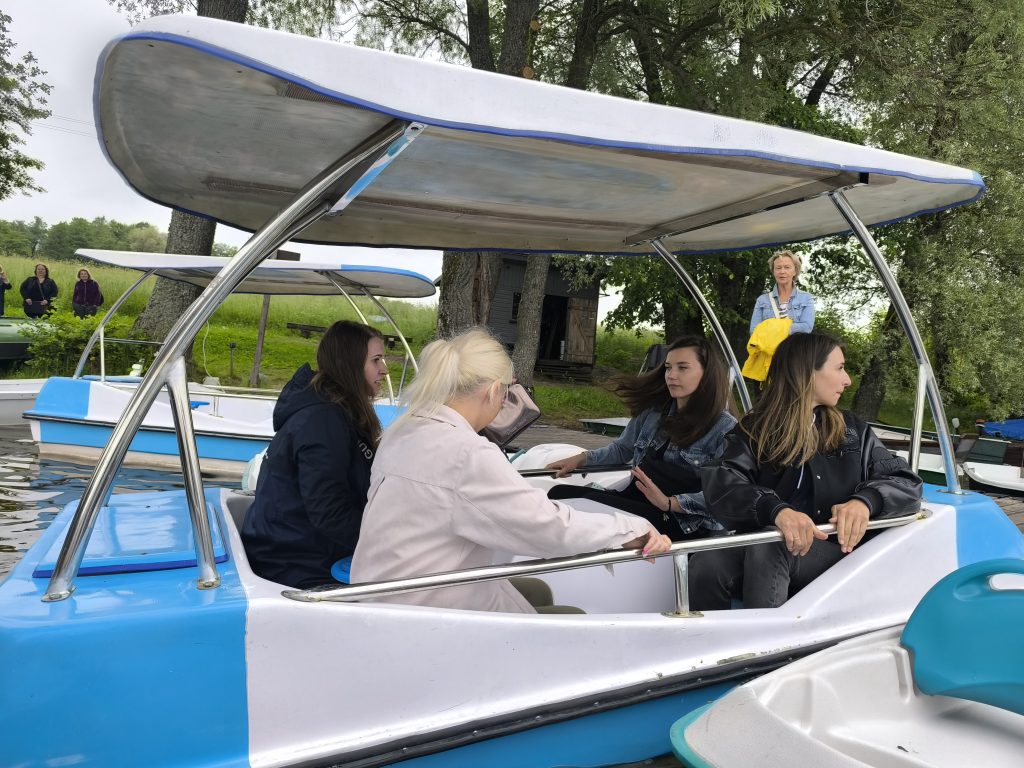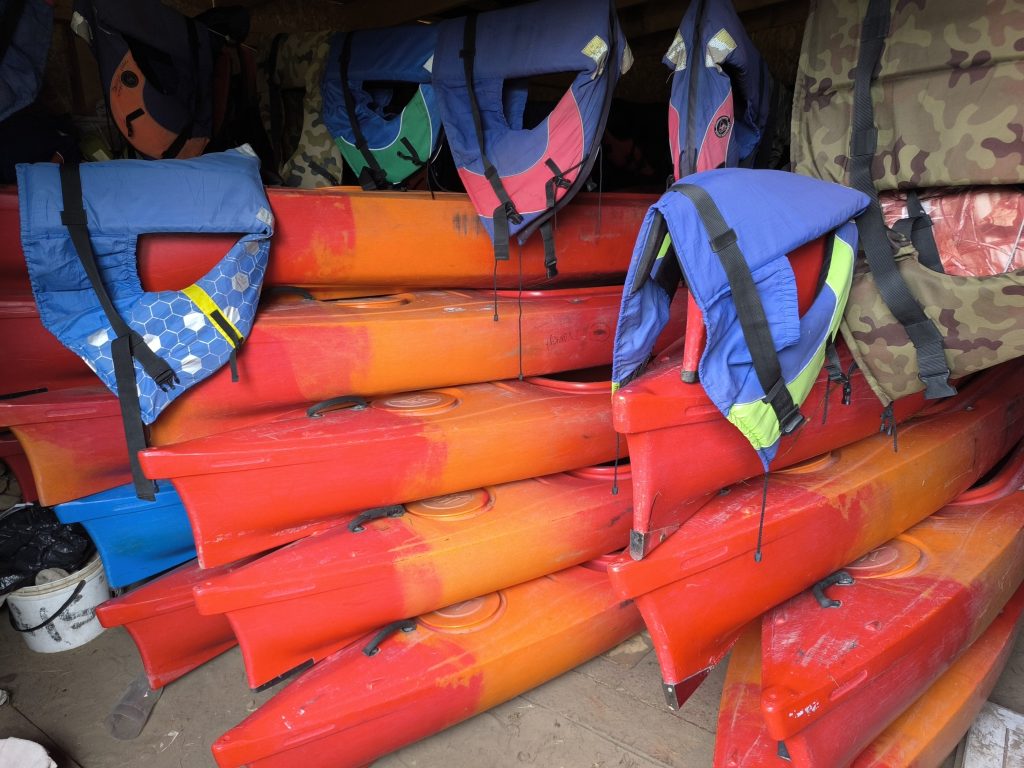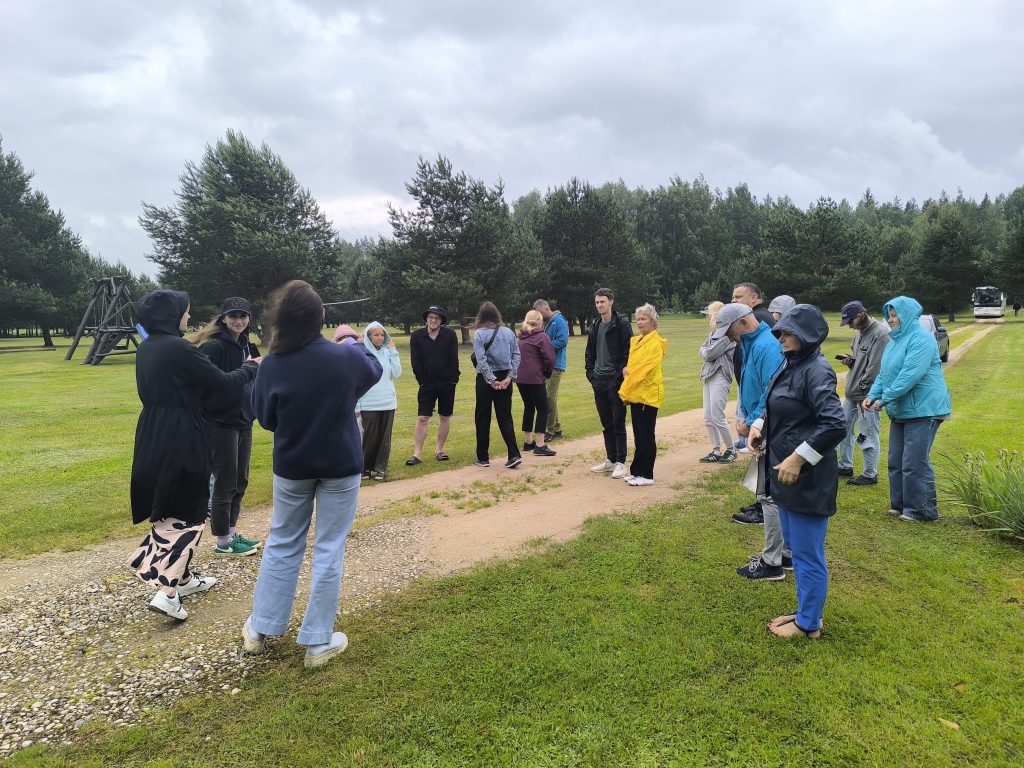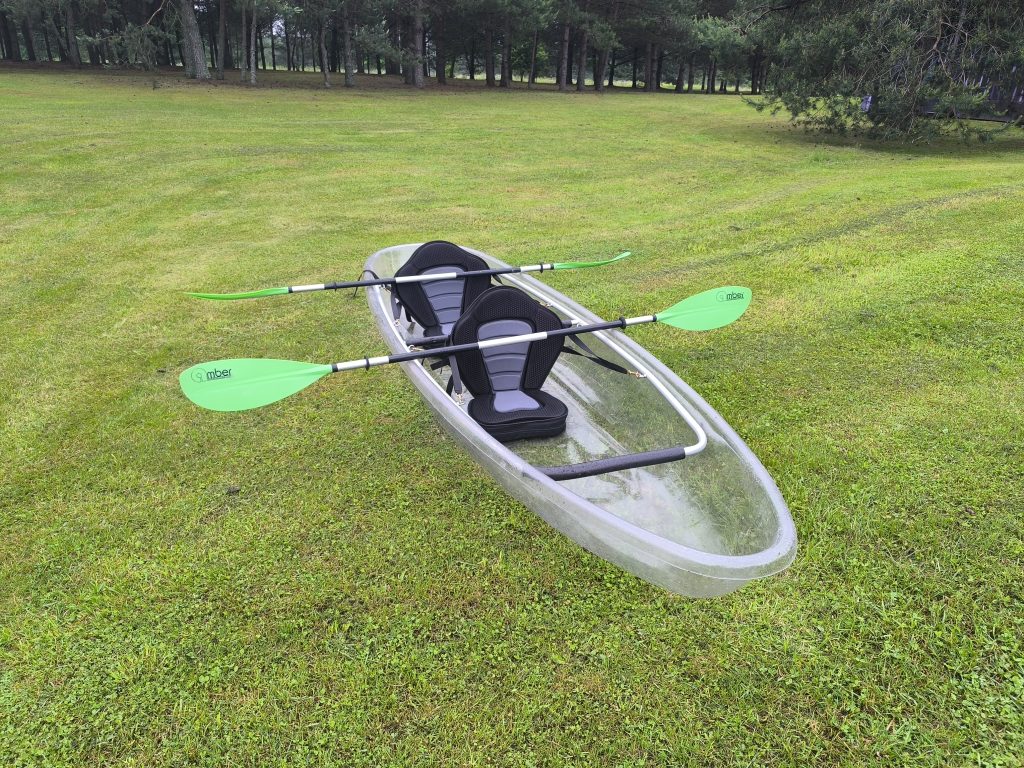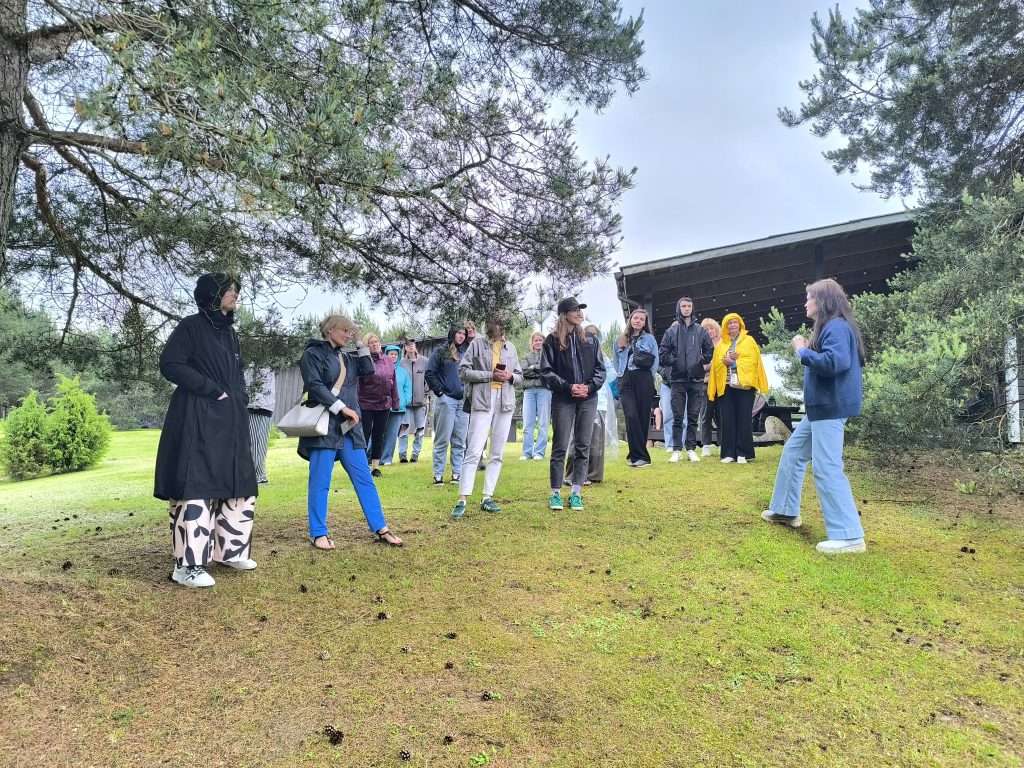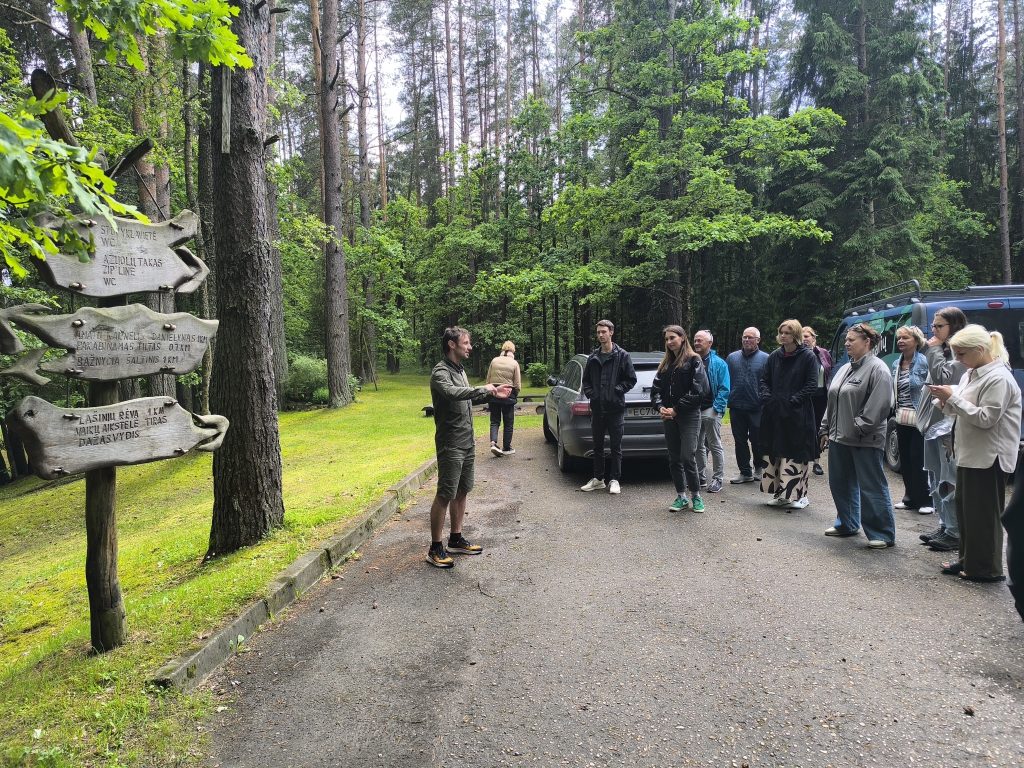
On 17–18 June 2025, a study visit took place in Lithuania as part of the “WaterWays” project, bringing together water tourism developers and tourism information providers from Latvia and Lithuania. The purpose of the visit was to promote cross-border cooperation, share good practices, and gain inspiration from the tourism offer in the Molėtai region – with a special focus on water tourism and nature-based tourism development solutions.
The visit began at the homestead “Kliukai,” where participants met with a representative from the Molėtai Tourism Information Centre to discuss current challenges related to water tourism development — including seasonality, safety, and the creation of sustainable tourism products. The discussion emphasized the importance of close cooperation between the public and private sectors to develop a competitive and attractive tourism offer. Later, the hosts of “Kliukai” shared their experience in the development of hospitality services in the region, highlighting practical solutions for extending the tourism season and increasing visitor stay durations. The site also offers accommodation services, and participants had the opportunity to explore a library-themed holiday house, as well as learn how to naturally achieve turquoise-colored ponds through biological means.
After lunch, participants visited the Mindūnai campsite — a multifunctional area that combines nature-based recreation, water tourism, and space for events. A campsite representative guided the group through the site, including an observation tower offering expansive panoramic views of the surrounding landscape. The visit continued to the homestead “Įlankos sodyba,” where participants enjoyed an educational boat trip on Lake Bebrusai aboard a raft built by the owner. During the experience, participants not only learned more about the business model but also gained insight into how local recreation opportunities have been developed.
The second day began with an immersive experience in nature — a visit to the Treetop Walking Path “Medžių lajų takas,” the first treetop trail of its kind in the Baltics and Eastern Europe. The attraction offers visitors a unique perspective of the forest by allowing them to walk at treetop level. The trail concludes with an observation tower and starts at a tourism information center, which also serves as a nature interpretation hub. During the visit, discussions touched on the management and maintenance of natural attractions and related infrastructure.
Later, the group traveled to the shore of Lake Rubikiai to visit the restaurant “Žuvienės pašiūrė,” where participants had the opportunity to try pedal boats and rowboats — part of the restaurant’s integrated leisure offer. The site served as an excellent example of how catering and water-based activities can complement each other to create added-value tourism experiences.
The afternoon was dedicated to visiting homesteads along the Šventoji River that provide various water tourism services. At “Žalioji stotelė,” the hostess introduced her property and discussed daily operations of kayak rental, including managing customer flow and planning the season. Participants learned that typical kayaking routes in this region of Lithuania are 7–10 km long. The homestead also features riverside landing spots, picnic areas, and accommodation options.
At the “Geras” homestead, the hostess shared her experience of offering transparent kayaks — a unique service that has been well received by clients. She also outlined the practical challenges, noting that these kayaks are less comfortable for longer rides and require more effort to paddle than traditional ones. The homestead also offers distinctive accommodations in a hilly landscape, where each cottage is decorated in its own color theme — from interior design to tableware.
The visit concluded at “Šventosios upės slėnis,” a summer house with a sauna, located in a forested area within a nature reserve. This was the wildest and most untouched location of the visit, where the owners emphasize a tranquil, authentic experience. In addition to boat rentals, the site offers a specially designed map with orientation checkpoints for kayaking routes, as well as the possibility of a nighttime paddling adventure. On the way to this location, participants made a stop at the scenic Mikieriai Escarpment, where they enjoyed panoramic views of the winding Šventoji River. A designated landing and rest spot for paddlers was also observed there.
Over the course of two days, participants gained valuable insights into how businesses of various scales in Lithuania are building an appealing water tourism environment — combining local traditions, natural resources, and modern recreational offers. Attendees acknowledged that the experience was highly inspiring and full of practical ideas that could also be adapted in Latvian regions. At nearly every location visited, hosts emphasized the importance of peace and quiet in nature-based tourism. None of the places are rented for just one night, nor are they open to guests seeking loud celebrations — as the primary value they offer is tranquility and closeness to nature.
The WaterWays project – “Development of the water routes network in Latvia and Lithuania by further expanding the cross-border tourism product” (LL-00011) is being implemented with the support of the Interreg Latvia–Lithuania Programme.
Official project website: https://latlit.eu/theprojects/waterways/
Information prepared by:
Viktorija Reine
Project Manager of the Kurzeme Planning Region
Phone: +371 28232978
Email: viktorija.reine@kurzemesregions.lv
